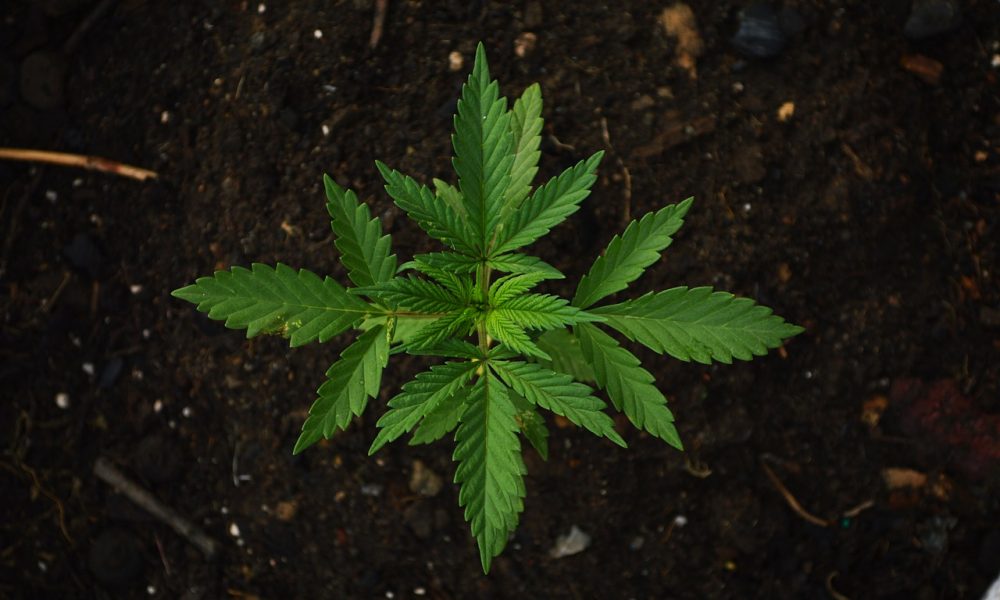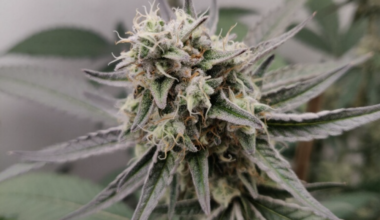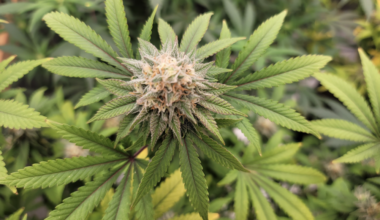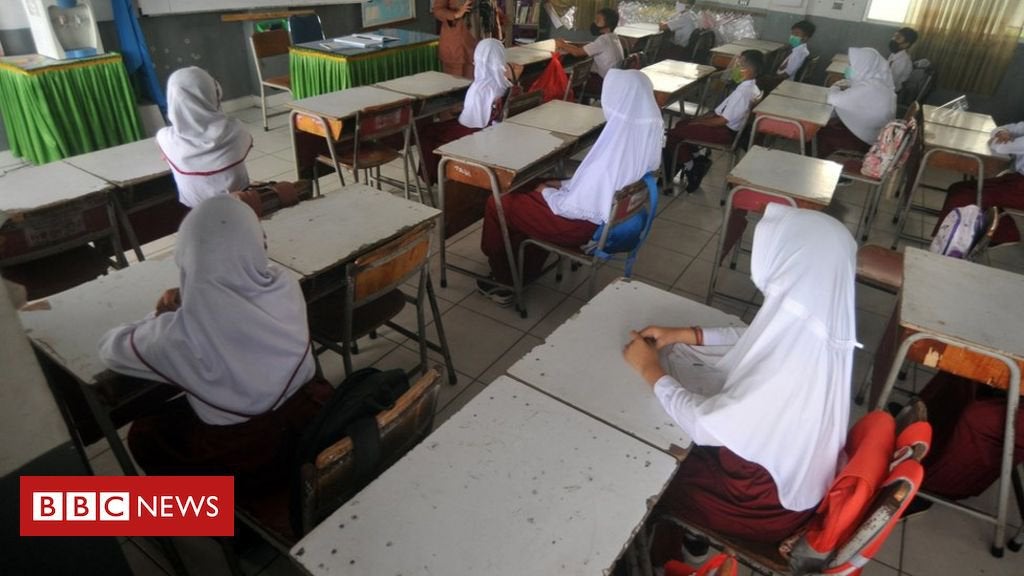Two GOP congressmen are asking President Joe Biden to promptly address “discriminatory” federal marijuana enforcement issues in tribal territories, imploring him to direct the relevant agencies to prioritize more serious crimes like human trafficking and respect tribal sovereignty instead of going after cannabis.
Reps. Dave Joyce (R-OH) and Brian Mast (R-FL), the Republican co-chairs of the Congressional Cannabis Caucus, sent a letter to the president on Friday, seeking administrative action with respect to cannabis policy for the Bureau of Indian Affairs (BIA).
The lawmakers said that they wanted to raise attention to the issue in light of Biden’s proclamation last week pardoning people who have committed federal marijuana possession offenses and his directive for an administrative review of cannabis scheduling.
“We request that you use your authority to keep the Bureau of Indian Affairs and related agencies, such as the National Indian Gaining Commission, focused on more pressing public safety and justice needs, including Missing and Murdered Indigenous Women and human trafficking, and require such agencies to respect Tribal sovereignty moving forward,” they wrote.
“Legal, thriving cannabis programs are economic engines for Tribes,” the letter says. “Enforcing federal cannabis laws on Tribal land, especially in cases where the Tribe and the State have legalized cannabis use, is wrong and it needs to stop. Not only is it not right, but it is discriminatory.”
Joyce and Mast cited a BIA enforcement action in New Mexico last year, when federal agents raided the garden of a member of the Pueblo of Picuris and destroyed nine plants he was growing for personal therapeutic use in compliance with state and tribal law.
The New Mexico man recently filed a claim indicating his intention to file a lawsuit seeking $3.5 million in damages from the federal government over what he and others view as a double standard of racially discriminatory cannabis criminalization.
The BIA cannabis raid was strongly condemned by Pueblo of Picuris Gov. Craig Quanchello, who told Marijuana Moment in an earlier interview that he similarly felt that the action constituted racial discrimination. The tribal government said in a letter to BIA that the raid was “a gross invasion of the Pueblo’s sovereign authority over its members and other persons residing on its land.”
“These misguided enforcement actions have sent a chill through Indian Country—Tribes are unsure if the Federal Government will continue to enforce and prioritize federal cannabis laws only on reservations,” the congressmen wrote to Biden.
Outside of the administration, Joyce helped secure Fiscal Year 2023 appropriations language in the Interior base bill to provide protections for Indian tribes against being federally prosecuted simply because they’ve legalized marijuana within their territory.
The language is somewhat similar to previous sections attached to different spending measures as amendments that have pushed to give cannabis safeguards to tribes.
—
Marijuana Moment is tracking more than 1,500 cannabis, psychedelics and drug policy bills in state legislatures and Congress this year. Patreon supporters pledging at least $25/month get access to our interactive maps, charts and hearing calendar so they don’t miss any developments.![]()
Learn more about our marijuana bill tracker and become a supporter on Patreon to get access.
—
“Tribes are sovereign nations, and they have just as much of a right to enact and enforce their own laws as States do,” the lawmakers said.
At a congressional hearing in April, Joyce separately raised the tribal cannabis issue with Interior Secretary Deb Haaland.
The secretary was also pressed on the agency’s marijuana enforcement policy at a Senate Appropriations subcommittee hearing in July.
“Again, we request that you take prompt action to have the Bureau of Indian Affairs focus on more pressing issues like human trafficking and Missing and Murdered Indigenous Women, rather than enforcing Federal cannabis laws inconsistent with Tribal laws,” the GOP lawmakers’ letter to Biden concludes.
In June, a Senate committee held a listening session to broadly address marijuana issues for Indian tribes, discussing relevant legislation and the importance of tribal sovereignty with respect to cannabis.
Members of the Senate Indian Affairs Committee, chaired by Sen. Brian Schatz (D-HI), heard testimony from numerous representatives of Indian tribes and trade associations across the country, including the Suquamish Tribe, Pueblo of Laguna, Kumeyaay Nation, Puyallup Tribe and Santee Sioux Tribe.
While many of the conversations focused on tribal-specific policies and issues such as taxation and tribal contracts with state governments, there were also several witnesses who stressed the need for a comprehensive end to federal prohibition to uplift tribal markets.
In March, a coalition of nine U.S. senators sent a letter to Attorney General Merrick Garland, urging him to direct federal prosecutors to not interfere with marijuana legalization policies enacted by Native American tribes.
The letter requested that the Justice Department “respect the inherent sovereignty of Tribal governments and cease the enforcement of the Controlled Substances Act on Tribal land as it pertains to the growth, possession, and use of cannabis for medicinal, agricultural, and recreational purposes, where those Tribes have legalized this activity for its own members and those acting in compliance with Tribal law.”
There was previous Obama-era DOJ guidance on prosecutorial discretion for tribal governments that opted to legalize cannabis. But that guidance, known as the Wilkinson Memo, was rescinded by then-Attorney General Jeff Sessions in 2018, along with a separate memo urging prosecutors not to go after states that established regulated cannabis markets.
The senators urged the attorney general to “reinstate prosecutorial discretion and allow U.S. Attorneys to deprioritize cannabis enforcement where states and Tribes have legalized cannabis.”
While the tribe-specific DOJ guidance was rescinded, the federal government has generally taken a hands-off approach to marijuana enforcement in states that have chosen to legalize the plant—with a glaring exception being last year’s BIA raid in Pueblo of Picuris.
Meanwhile, the Pueblos of Pojoaque and Picuris signed an intergovernmental cooperative agreements with New Mexico’s government in May that allows the tribes to impose their own tax on cannabis products sold within their tribal jurisdictions.
Other states like Washington similarly allow Native tribes to enter into intergovernmental agreements that would authorize Indian territories to enact their own regulations, penalties and tax policies for cannabis.
Read the congressional letter to Biden on federal marijuana enforcement policy for tribes below:
Medical Disclaimer:
The information provided in these blog posts is intended for general informational and educational purposes only. It is not a substitute for professional medical advice, diagnosis, or treatment. Always seek the advice of your physician or other qualified healthcare provider with any questions you may have regarding a medical condition. The use of any information provided in these blog posts is solely at your own risk. The authors and the website do not recommend or endorse any specific products, treatments, or procedures mentioned. Reliance on any information in these blog posts is solely at your own discretion.







